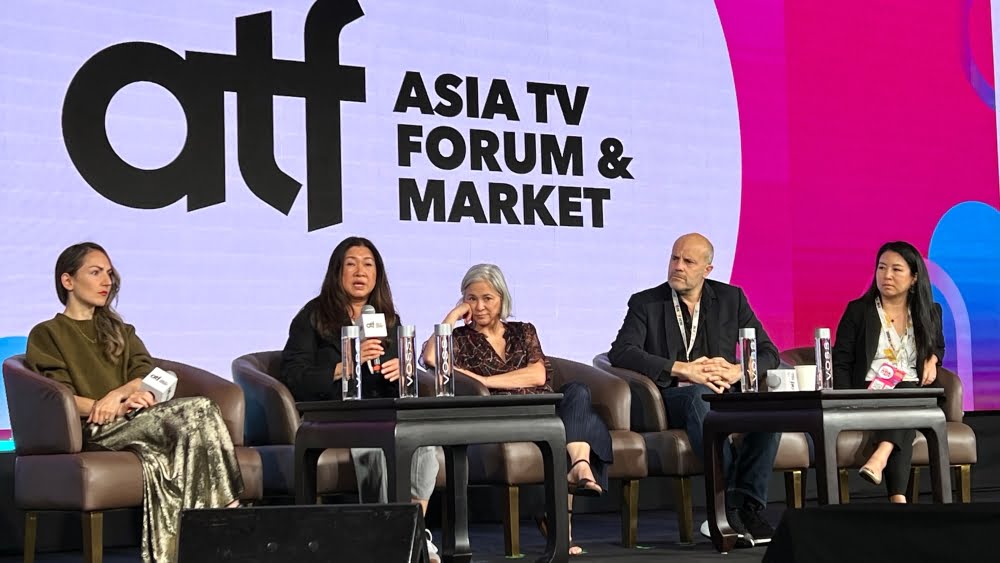Hollywood Dealmakers Learn to Be Flexible in Asia
[ad_1]
Hollywood’s role in Asian TV has changed in the streaming era and age of hyper-local content. A top-down sales and distribution position has eased into one of co-production, co-financing and acquisition.
A high-powered array of western executives offered experienced views and discussed their current positions at a panel session Thursday within the Asia Television Forum & Market in Singapore.
“We want to be an additive partner on shows that cannot be created locally, said Georgina Gonzalez, director of scripted series and global series at Universal Int’l Studios, NBCU. “We are typically looking at bigger budget or creative packages […] We mostly act like a traditional studio and can finance development or help with optioning material. But we can also do deficit financing as something is going into production and recoup afterwards through sales.”
Mandy Chang, head of global documentaries at multinational producer and distributor Fremantle, said, “We can studio finance, but mostly [that is restricted to the] biggest titles. Typically, we look for shows to get [broadcaster or streamer] commissions. The market has slowed down, so everybody needs to be resourceful, find where the money is.”
Ron Halpern, EVP of global production and talent management at Studiocanal, the French multinational with European pay-TV operations and some Asian production activities, said that the group has not typically co-produced in Asia, but that is changing. “We can studio finance or develop and different models are available.”
The panelists tackled the inevitable question about whether it is better to produce a quintessentially local show or to locally produce one that also aims to be seen overseas.
“Not all shows can work internationally. The quality of story-telling needs to be high for that to happen,” said Chang.
And not all shows need to set their sights overseas. “There is a space for good local content,” said Halpern. Anonymous Content talent manager, Kimberly Carver’s advice was simpler still. “Create the package first,” she said. Only then decide the route to market and financial structure.
Local producers have resources that the overseas groups may not. These include talent relationships and established relationships with in-country commissioners.
Tenacity and simplicity may also be assets. “Nobody wants period drama these days. Everyone says they want contemporary and aspirational. But don’t give up when people say no on that [because cycles change].”
And “make sure to have a two-sentence pitch,” was an idea that was widely embraced by all the participants.
[ad_2]
Source link

